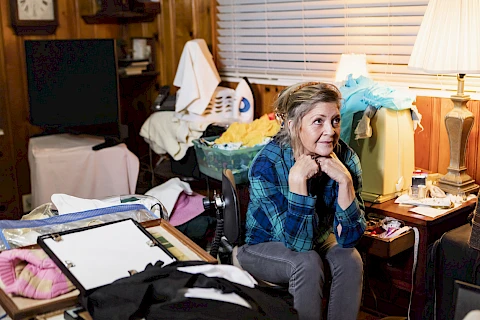
Hoarding is a behavior that can significantly impact the quality of life for seniors. Recognizing hoarding behaviors in senior loved ones helps their health and safety. This article allows caregivers to identify signs of hoarding behavior in seniors and guides addressing the issue with compassion and respect.
Hoarding Behavior
Hoarding is more than just having a lot of possessions; it's a persistent difficulty in discarding or parting with items, regardless of their actual value. Seniors may hoard for various reasons, including emotional attachments, fear of waste, or as a coping mechanism for loss or trauma. You should note that hoarding differs from collecting, which generally involves acquiring and organizing items of particular interest.
Physical Indicators of Hoarding
One of the most obvious signs of hoarding is excessive clutter. This may result in living spaces that are difficult to navigate. Key physical indicators include:
- Excessive clutter in living spaces: Rooms are filled with items, making it hard to use furniture or appliances.
- Difficulty discarding items: Reluctance to throw away anything, even broken or useless things.
- Accumulation of items with little or no value: Holding on to things like old newspapers, containers, or junk mail.
Emotional and Psychological Indicators
Deep emotional and psychological factors drive hoarding. Seniors may experience anxiety or distress at the thought of discarding items, showing a strong emotional attachment to possessions. This can lead to social isolation or withdrawal, as they may avoid visitors or social interactions due to embarrassment or the condition of their home.
Environmental Indicators
The environment of a senior's home can reveal much about the presence of hoarding behaviors. Unsanitary living conditions, such as mold, pests, or bad odors due to accumulated trash or food are common. Blocked pathways and exits created by clutter can make movement difficult and raise safety concerns. Excessive clutter can increase the risk of fires and hinder emergency responses.
Approaching the Topic With Sensitivity
Discussing hoarding with a senior loved one requires a delicate approach. It's crucial to show empathy and respect for their feelings and struggles. When starting a conversation about hoarding, choose a calm, private time to talk and express your concerns without being confrontational. Use neutral, non-judgmental language to avoid making the senior feel defensive or embarrassed.
Seeking Professional Support
Sometimes, professional help is needed to effectively address hoarding. Consider seeking assistance if the situation poses safety risks or the senior is unable to control their hoarding behavior. Therapists, counselors, social workers, and professional organizers equipped to handle hoarding can provide valuable support. Some local services and professionals specialize in helping seniors manage hoarding behaviors.
Senior Helpers Sun City Supports Seniors and Their Families
Identifying hoarding behaviors early can significantly impact a senior's well-being. Look out for physical clutter, emotional distress, and environmental hazards. Approach the topic with empathy and seek professional help if necessary. If you suspect a loved one is struggling with hoarding, don't hesitate to contact Senior Helpers Sun City for support in El Mirage, Sun City, Youngstown, and Surprise. Acting now can help improve the safety and quality of life for your senior loved one.